ELEVEN TO TWELVE YEARS
 Biblezines series. Nashville, TN: Thomas Nelson, various dates.
Biblezines series. Nashville, TN: Thomas Nelson, various dates.
Thomas Nelson publishers has created a series of whole-text Old and New Testaments printed in the style of a modern magazine. They call them “Biblezines.” There are different versions for different genders and age groups. There is Revolve for girls and Refuel for boys. There are also other age levels represented. This can be helpful for young preteens who enjoy this medium of literature (http://www.amazon.com/Revolve-2007-New-Testament-Biblezine/dp/0718016483/ref=pd_sim_14_5?ie=UTF8&dpID=61ZTKT9DGTL&dpSrc=sims&preST=_AC_UL160_SR118%2C160_&refRID=01JN82W1F1RWMSR58N18).
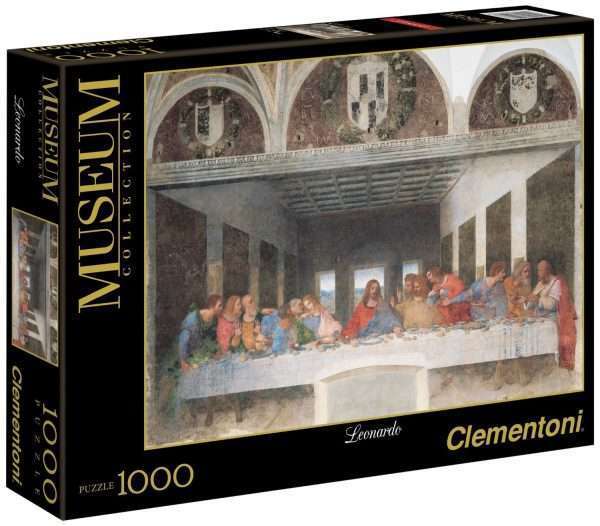
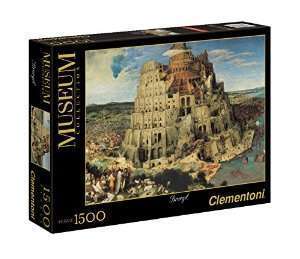 Clementoni Biblical Scene Jigsaw Puzzles – Tower of Babel and The Last Supper.
Clementoni Biblical Scene Jigsaw Puzzles – Tower of Babel and The Last Supper.
These two puzzles are more difficult than the one mentioned previously because of the number of pieces. That is why they are listed in this older age group. Like already stated, puzzles are a great way for families to come together and share a positive experience away from electronic devices. Both of these puzzles feature images of Biblical scenes that are also masterpieces in art history.
- Clementoni 1500 Piece Bruegel The Tower of Babel Puzzle (http://www.clementoni.com/en/31985-bruegel-the-tower-of-babel-1500-pieces-museum-collection/).
- Clementoni 1000 Piece The Last Supper Leonardo da Vinci Jigsaw Puzzle (http://www.clementoni.com/en/31447-leonardo-the-last-supper-1000-pieces-museum-collection/).
Commission on Children at Risk. “Hardwired to connect: The new scientific case for authoritative communities.” A report by the Institute for American Values, 2003.
This report is the result of a large study done by leaders from various fields who work with children and who are stakeholders in the conversation of how to improve the lives of youth. The study found that children need “authoritative communities” in order to thrive. Children are made for relationships and find meaning when there is a strong moral and spiritual foundation around them in the form of community. Leaders can use this to better understand children from all types of communities and explore how to better nurture their spiritual development (http://www.americanvalues.org/search/item.php?id=17) (https://www.youtube.com/watch?v=p2a-W183l04).
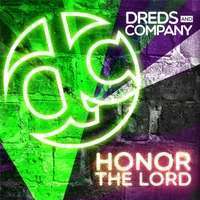 Dreds and Company.
Dreds and Company.
Dawna Duke is a musician who has written worship songs geared towards the preteen age group. Most songs are upbeat Scripture lyrics so the kids can learn Scripture while they sing. She goes by the name of “Dreds” and usually brings other team members to help with the singing and leading the motions (“Company”). They travel to churches and camps leading worship for kids and family ministry events (http://www.dredsandcompany.com/).
The Family Prayer Corner.
Inspired by an idea from my daughter’s school (which uses the Atrium and the Catechesis of the Good Shepherd), I created a family prayer corner which has since turned into a creative space in which our entire family connects with God and with one another. Here is my blog post about it from February 26th, 2016: (http://jessejoyner.com/the-family-prayer-corner/)
Yesterday, I worked together with my five-year old daughter to set up a little prayer station in our house. My wife and I got the idea from her school, which uses a lot of hands-on activities that teach kids about spirituality.
I’ve always been a little skeptical of creating ritualistic prayer spaces because I want kids to know that they can pray anywhere, anytime, all the time.
But, I went ahead and tried this prayer corner idea and I was amazed at how excited my daughter got about it. There was something tangible she could do and touch while she did something that is very deep, abstract, and invisible. Truth be told, my wife and I got excited about praying at the prayer station too. As adults, we often treat prayer as a perfunctory chore. But this prayer station helps touch the human senses in ways that provides concrete metaphors for unseen realities.
So far, it has done wonders for us in terms of reminding us to pray and as a gathering point for our family to joyfully pray together.
Here’s what we did:
- We got a glass plate and a miniature clear glass jar (like a small Mason jar).
- We found some smooth decorative rocks that we had in a drawer. For you, these could be any kind of rocks. We call them the “prayer rocks.”
- We placed the prayer rocks around the jar on the plate.
- We found a battery-powered votive candle (that you can get at any hobby/craft store) and placed it on one end of the plate.
- We explained the idea to our daughter and allowed her to to choose a spot in the house to put the prayer station.
Here’s the way to use it:
- Whenever anyone wants to, they can go to the prayer station for as long or as short of a time they like. You can go alone or with someone else. It is always voluntary. And it should never be something we “show off” to look spiritual (Matthew 6:5-6).
- Light the votive candle.
- Grab a rock and say a prayer. There is nothing magical or spiritual in the rock. But it can help us focus and act as reminder that God hears our every little prayer. The rock can also be a symbol that God is our rock and our foundation. The prayer can be either silent or out loud. You can take whatever posture you like.
- Drop the prayer rock in the jar and stay as long as you like. There’s something about the sound of the glass bead rocks in the glass jar that adds a sort of song to the prayer.
- Turn off the votive candle.
- When the jar is full or the all the rocks are used up, reset the rocks to the original position of being spread around the empty jar. Before you reset it, take in the sight of the full jar as a reminder of all the prayers that God has heard and His faithfulness to answer.
If you try this, I would encourage you to put your own spin or family personality on this station. Also, though we haven’t added the following yet, I think it would be helpful to have some prayers on hand nearby in a drawer if someone wants to pray a pre-written prayer (either from Scripture or a good prayer book). You could also frame the Lord’s Prayer (Matthew 6:9-13) and place it at the prayer station.
This could also easily be turned into a Worship Response Station for large groups at church or at camp. You could set up tables with small rocks all over them. Have the kids say a prayer and then place (not throw) the rocks in a wooden bowl or a similar type of container.
I still firmly believe in prayer as something we can do anywhere and anytime (John 4:21-24). But even Jesus spoke of the prayer closet (Matthew 6:6) and he himself had the Garden of Gethsemane (“Jesus went out as usual to the Mount of Olives” – Luke 22:39). So why not create a Gethsemane in our homes for our families, the very foundational place of spiritual growth for our children?
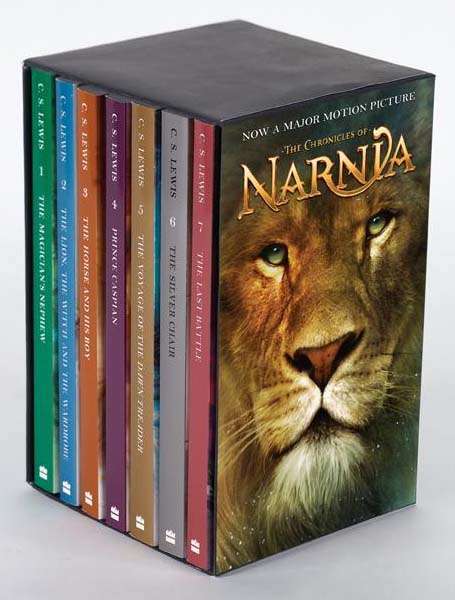 Lewis, C.S. The Chronicles of Narnia. New York: Harper Collins. 2002.
Lewis, C.S. The Chronicles of Narnia. New York: Harper Collins. 2002.
This classic seven-volume set of 20th Century fantasy literature by British author C.S. Lewis is accepted in both religious and secular arenas as excellent children’s literature. The series follows the story of four siblings caught up in a parallel universe called Narnia – home to fawns, witches, centaurs, nymphs, talking beavers, and the good lion Aslan. Lewis was an outspoken Christian with a gift for apologetics. He was also gifted in telling the story of redemption without coming across “preachy,” which is exactly what he accomplished with the Chronicles of Narnia. The story is clearly an allegory of God’s works of sacrificial love and consummate redemption through Christ, even though Lewis neither forces nor explicitly states this connection. It is a perfect series for parents to read to young children or children of ten or older to read on their own. Ideally, natural conversations about the similarities between Aslan and Christ and other connections can be had between parents and children (https://www.narnia.com/us).
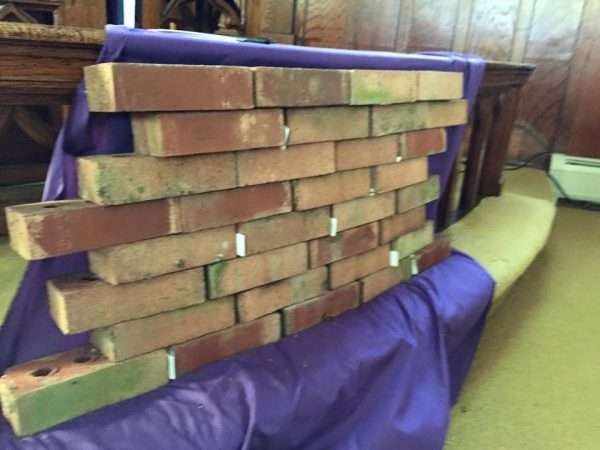 Local “Western Wall.”
Local “Western Wall.”
A praying wall with bricks and slats for placing prayers on folded pieces of paper can be constructed as a prayer station in church. This can be easily transferred to use with children in church or in the home. Waverly United Methodist Church in Waverly, PA is credited for this idea and here is there picture and description: “Today we began our Lenten series, “Watch and Pray.” The Wailing Wall in Jerusalem is the last remaining structure of the temple. A sacred place of the Jewish faith, local Jews and pilgrims of both the Jewish and Christian traditions tuck written prayers into the crevices between the rocks. This Lent, we will leave our prayers for God in our own wall.” Thanks to the Gilpins who happened to have a stash of bricks for us to borrow and John K who delivered them to church so we could build our prayer wall this morning! Stop in anytime to leave a prayer and join us Sunday at 9am as we continue to “watch and pray” (from the ‘Waverly Umc’ facebook page, posted 2/14/2016, accessed 2/17/2016).
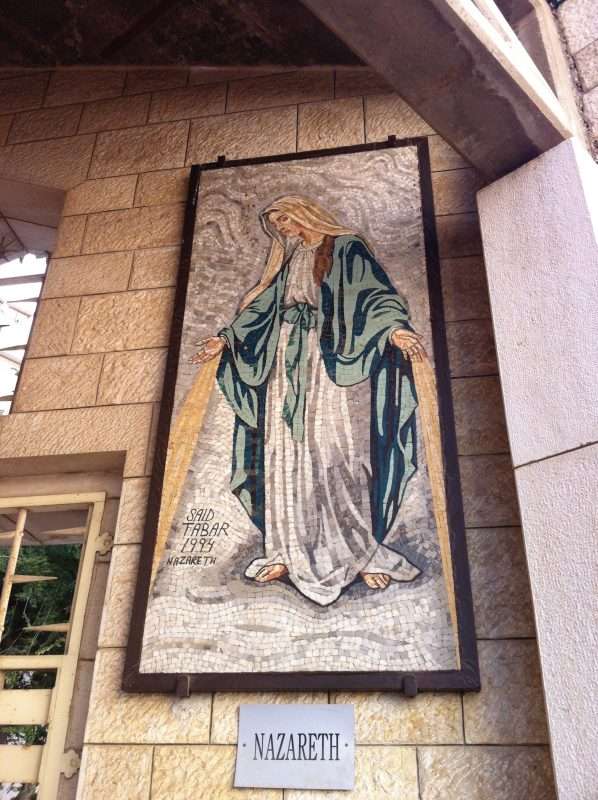 Mosaic Tile Art Installation at The Church of the Annunciation in Nazareth, Israel.
Mosaic Tile Art Installation at The Church of the Annunciation in Nazareth, Israel.
This is a series of mosaic tile portraits of the madonna and child (Mary and Jesus) from dozens of countries around the world. People can walk the courtyard of the church and appreciate the way different cultures around the world depict Mary and Jesus. In each one, the figures reflect the dominant skin tones, clothing, and symbols of the respective culture. It is a helpful way for kids and parents to learn about the various ways cultures around the world view Jesus and that Jesus should not be restricted to a bearded Western affluent white figure as he typically is in America (cf. May, Stonehouse, Posterski, Cannell, Children Matter, p. 124). If you cannot visit in person, you can view the mosaics here: (http://www.biblewalks.com/Sites/AnnunciationMosaics.html).
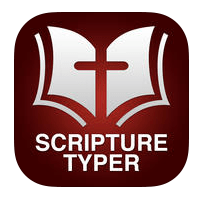 ScriptureTyper App.
ScriptureTyper App.
This is an app for devices that is specifically designed to aid in Scripture memorization. It has ten of the most popular English Bible translations and has a three step process that teaches the user to memorize a verse of their choice or one selected from a number of categories. It also tracks your progress and saves your memorized verses (https://scripturetyper.com/).
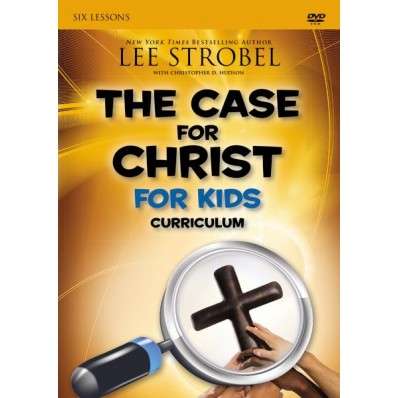 Strobel, Lee and Christopher D. Hudson. The Case for Christ for kids curriculum. DVD set. Grand Rapids, MI: Zondervan, 2013.
Strobel, Lee and Christopher D. Hudson. The Case for Christ for kids curriculum. DVD set. Grand Rapids, MI: Zondervan, 2013.
From well-known Christian apologist Lee Strobel comes his version of The Case for Christ geared towards kids. Preteens are struggling with the tough issues surrounding the reliability of Scripture, the existence of God, and the reason for the life and work of Jesus Christ. Ministry leaders can use this video-based curriculum to facilitate the six-lessons that are a part of the curriculum (http://www.zondervan.com/the-case-for-christ-for-kids-curriculum#).
*This list comes directly from a paper I wrote for a class at Trinity Evangelical Divinity School in Deerfield, IL in March 2016. The class was ES 7524 (Education and Ministry Experiences for Children) taught by Dr. Magdalene Larson.



